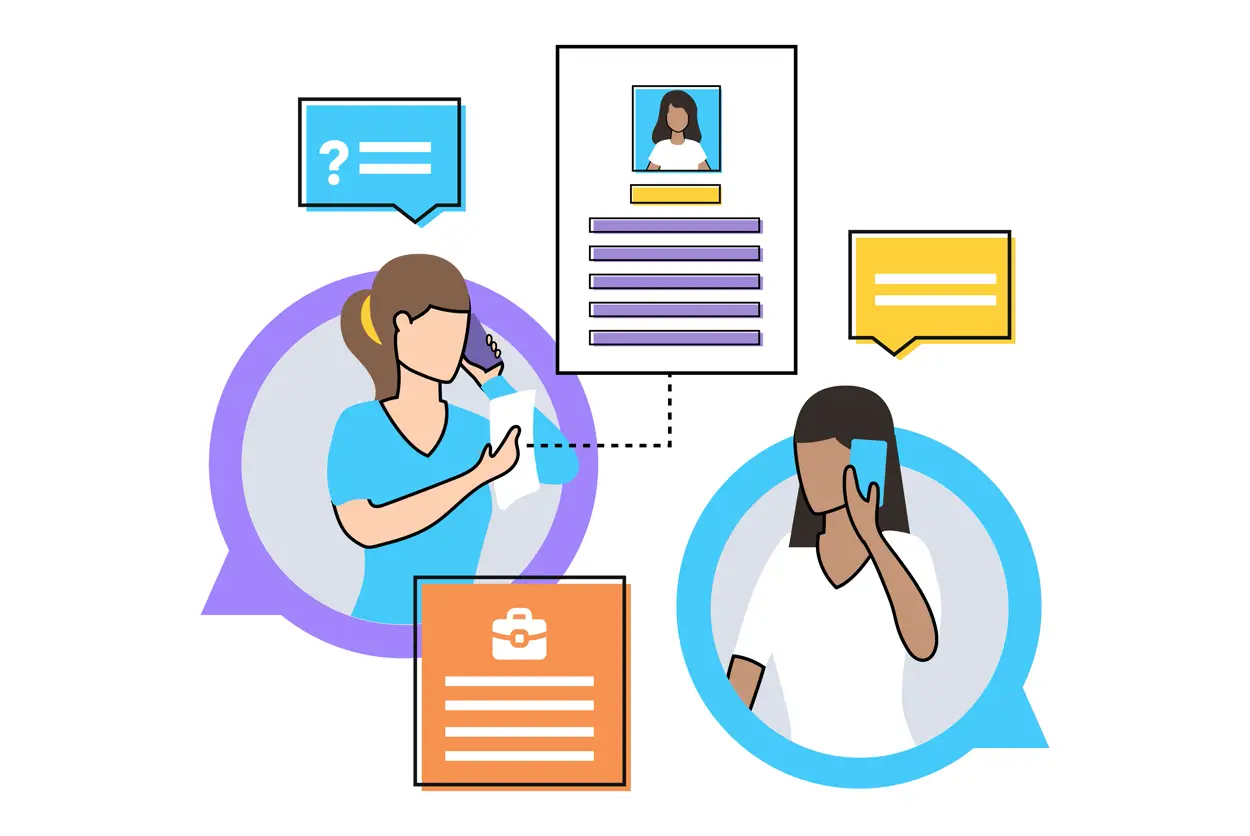10 Phone Interview Tips for Employers
In the current competitive job market, phone interviews play a vital role in the hiring process. They function as a preliminary screening to assess a candidate's suitability for an onsite interview and contribute to establishing a connection with the candidate. For employers, optimizing the phone interview process is key to attracting high-caliber candidates. Here are 10 tips to assist you in conducting successful phone interviews.
Tip 1: Establish a Structured Interview Process

Prior to initiating phone interviews, it's crucial to set up a well-defined interview process. Conduct a kickoff meeting with your hiring manager to outline the essential skills and values sought in a candidate. Utilize this input to formulate a standardized set of questions that interviewers will pose to every candidate. This approach guarantees that all candidates are assessed against identical criteria, promoting fairness and consistency in the selection process.
Tip 2: Be Flexible with Scheduling
When scheduling phone interviews, be considerate of the candidates' availability. Request their preferred times and try to accommodate them. Understand that candidates are often juggling their current job with the job-seeking process, so being flexible shows respect for their time and increases the chances of securing their participation.
Tip 3: Provide Alternatives to Phone Interviews
"At times, a highly qualified candidate might be reluctant to participate in a conventional phone interview. In such instances, provide alternative options, such as a brief phone call or a casual meeting with the hiring manager for coffee. This approach enables the candidate to connect with someone who understands their perspective, potentially increasing their willingness to engage in the interview process.
Tip 4: Assess the Consistency of Interviewers' Scoring
Regularly review the evaluations provided by your interviewers and compare them with the outcomes of onsite interviews. Examine the consistency in scoring and determine whether interviewers tend to assign high scores to candidates who are eventually hired or low scores to those who are not. Some interviewers may excel in evaluating candidates during the phone interview stage, while others may benefit from coaching to enhance their ability to identify strong candidates."
Tip 5: Be Prepared and Review Candidate Information

Before every phone interview, allocate time for the interviewer to thoroughly review the candidate's resume, the job description, and the predefined questions. This preparation guarantees that the interviewer is punctual, well-equipped, and capable of delivering a positive experience for the candidate. The candidate will value the effort invested in comprehending their background and qualifications.
Tip 6: Understand the Candidate's Motivations
Use the phone interview as an opportunity to learn more about the candidate's motivations for considering a new role. Understanding their reasons can help you tailor the recruitment process to highlight the aspects of your opportunity that align with their aspirations. Identifying shared values and goals early on can give you a better understanding of cultural fit and enhance the candidate's interest in your organization.
Tip 7: Allow Candidates to Ask Questions
Keep in mind that the phone interview is more than just a chance for you to assess candidates; it's also an opportunity for candidates to assess your organization. Encourage candidates to pose questions throughout the interview, and allocate time at the conclusion for any additional inquiries they may have. Actively listening to their questions allows you to gather insights into their priorities and interests, aiding in the assessment of their potential fit within your company.
Tip 8: Communicate Next Steps Clearly
After concluding the phone interview, outline the next steps in your recruitment process to the candidate. Inform them about what to anticipate and when they can expect feedback from you. It is essential to fulfill your commitments, even if it involves a brief note explaining that more time is needed for a decision. Transparent communication contributes to a positive candidate experience and showcases professionalism.
Tip 9: Gather Internal Feedback Promptly
Immediately after each phone interview, allocate 15 minutes for the interviewer to provide feedback while the conversation is still fresh in their mind. This feedback should be promptly reviewed by the hiring manager to determine which candidates should be invited for an onsite interview. Gathering feedback quickly keeps the hiring process moving efficiently and minimizes the risk of losing top candidates to competing companies.
Tip 10: Conduct a Stand-Out Phone Interview

While many companies treat phone interviews as mere administrative tasks, you can stand out by conducting engaging and meaningful conversations with candidates. Show genuine interest in their background and qualifications, actively listen to their responses, and make the experience enjoyable. By conducting standout phone interviews, you can attract top-tier candidates and increase the likelihood of them accepting your job offer.
Keep in mind that the phone interview provides an opportunity to create a positive impression on candidates and establish a solid foundation for the remainder of the hiring process. By adhering to these tips from Aniday, you can enhance your phone interviews and improve the likelihood of identifying the right candidate for your organization.
Aniday's HR Services
Headhunting Service
Find and recruit quality candidates in just 1 week! Supported by 40,000 experienced headhunters in IT, Finance, Marketing… capable of recruiting in any region.
Headhunting Service ➔Employer of Record (EOR) Service
On behalf of your business, we recruit employees and handle payroll without the need to establish a company in markets such as Vietnam, Singapore, Malaysia, India, Indonesia…
Employer of Record (EOR) Service ➔